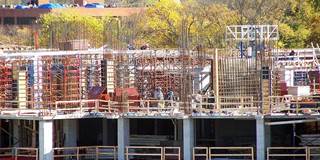A forthcoming report from the Inter-American Development Bank argues that the state and public policy should have a role in deciding what gets produced. A generation ago, this message would have been heretical; today, it is a matter of common sense.
SANTIAGO – First, the World Bank became a tireless advocate of women’s and gay rights. Then the International Monetary Fund backed the use of capital controls and voiced concern over income inequality. Next in line for ideological modernization is the Inter-American Development Bank (IADB): in a forthcoming report, the bank calls for industrial policies in Latin America.
This is a welcome development. To be sure, the IADB – never as stodgy as the Bretton Woods twins, but still a traditional international financial bureaucracy – does not speak of industrial policies; it uses the politically correct phrase “productive development policies” (PDPs). Yet the message is clear: in Latin America, the state and public policy should have a role in deciding what gets produced. A generation ago, this message would have been heretical. Today, it is a matter of common sense.
Last week, economists from the IADB brought their gospel to a conference in Santiago, Chile. The country, for decades the region’s poster-child for good economic management, is also an example of the risks that all Latin American economies face. With commodity prices falling and dollar interest rates on the rise, Chilean growth is slowing sharply. Productivity gains have been sluggish for nearly 15 years, and the country’s export basket is the same as it was in the 1980’s.

SANTIAGO – First, the World Bank became a tireless advocate of women’s and gay rights. Then the International Monetary Fund backed the use of capital controls and voiced concern over income inequality. Next in line for ideological modernization is the Inter-American Development Bank (IADB): in a forthcoming report, the bank calls for industrial policies in Latin America.
This is a welcome development. To be sure, the IADB – never as stodgy as the Bretton Woods twins, but still a traditional international financial bureaucracy – does not speak of industrial policies; it uses the politically correct phrase “productive development policies” (PDPs). Yet the message is clear: in Latin America, the state and public policy should have a role in deciding what gets produced. A generation ago, this message would have been heretical. Today, it is a matter of common sense.
Last week, economists from the IADB brought their gospel to a conference in Santiago, Chile. The country, for decades the region’s poster-child for good economic management, is also an example of the risks that all Latin American economies face. With commodity prices falling and dollar interest rates on the rise, Chilean growth is slowing sharply. Productivity gains have been sluggish for nearly 15 years, and the country’s export basket is the same as it was in the 1980’s.